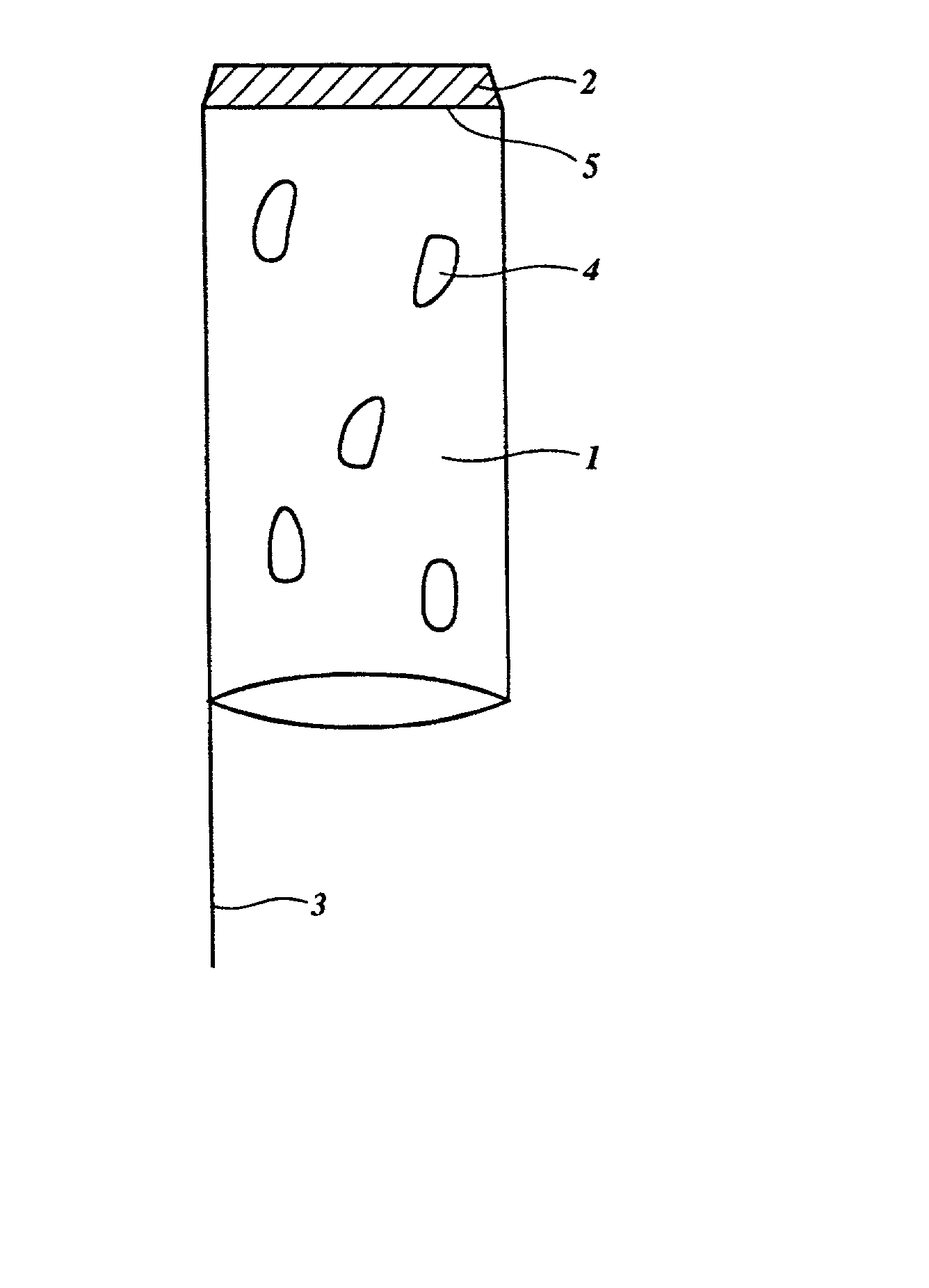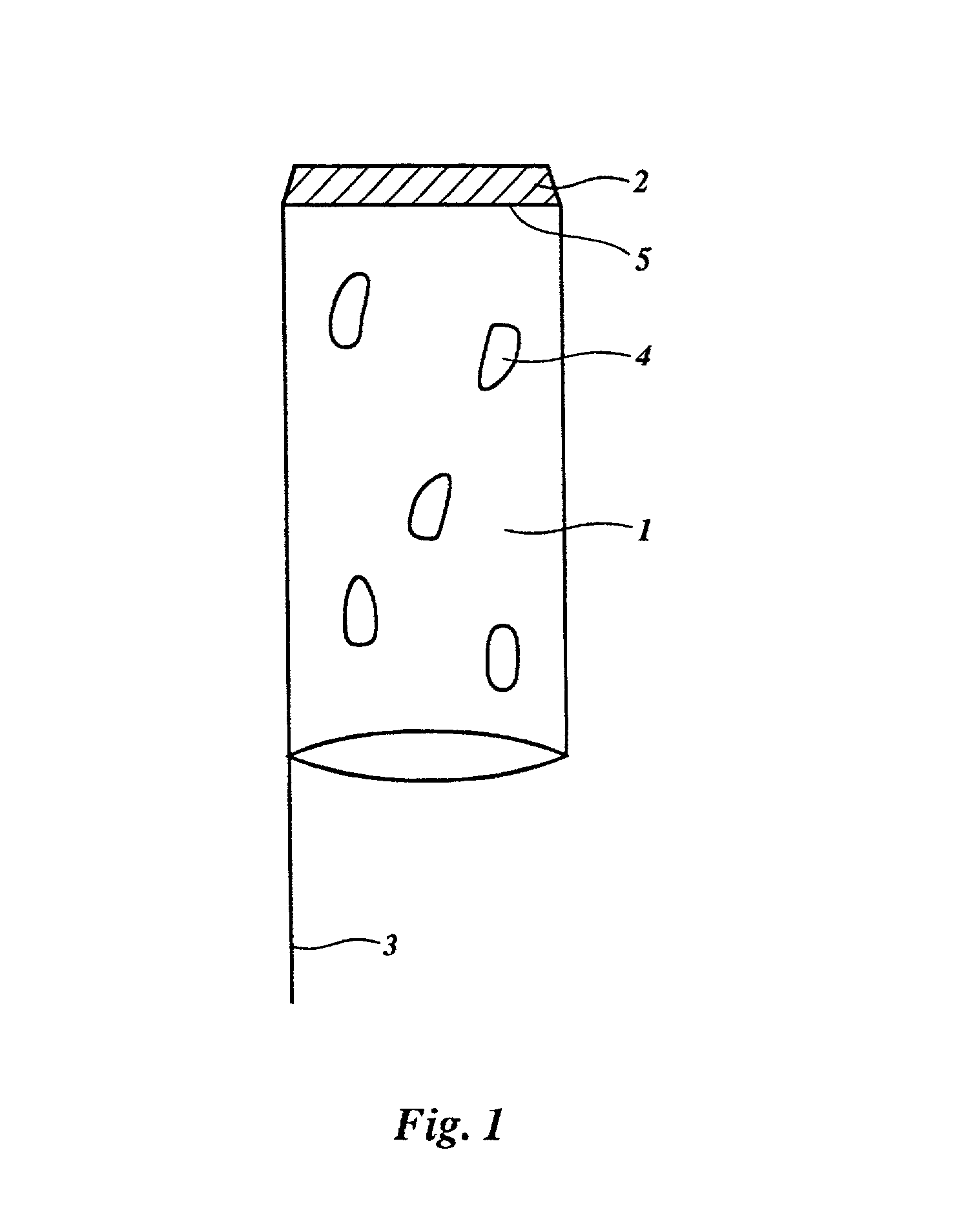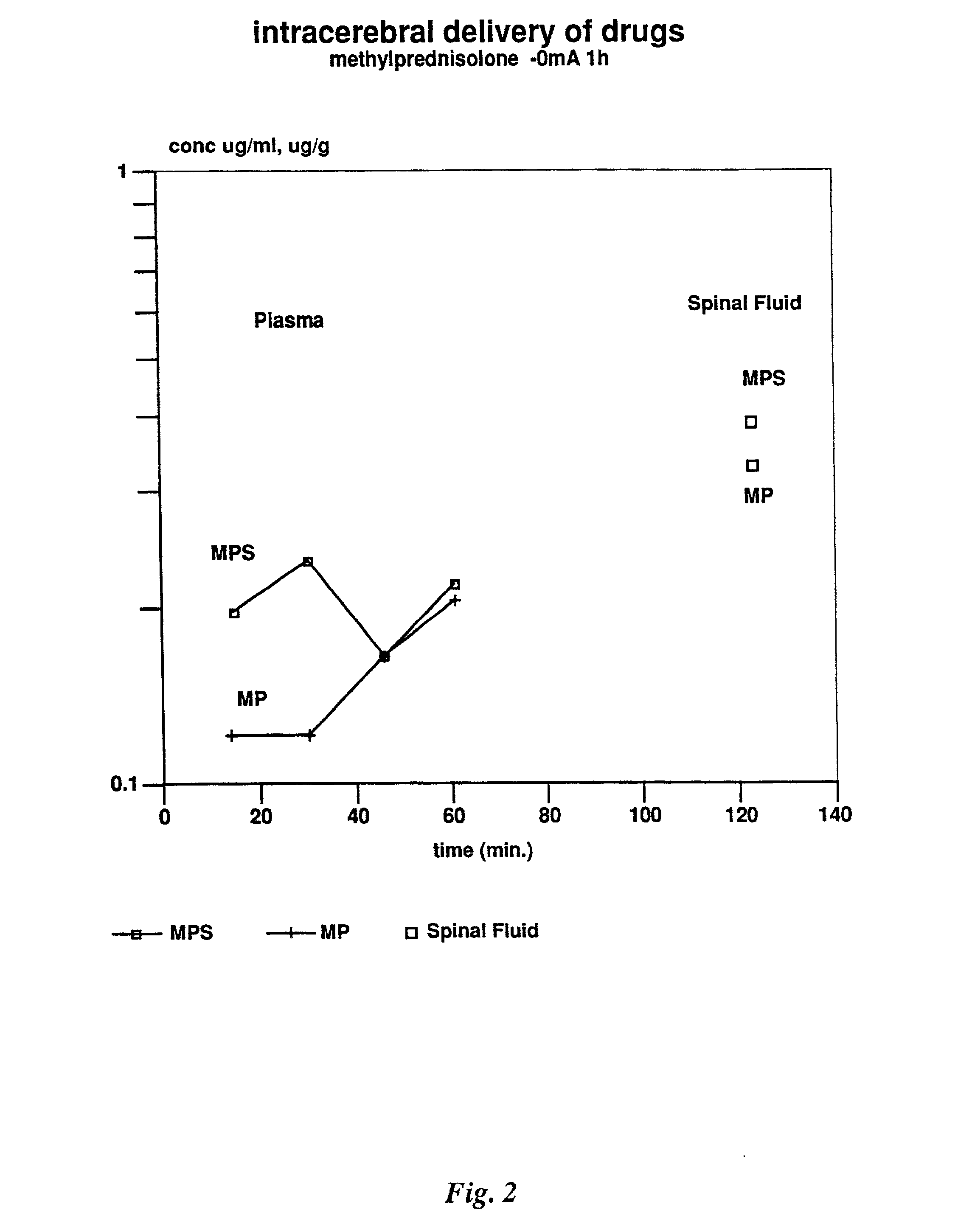Device for enhanced delivery of biologically active substances and compounds in an organism
a biological active substance and organism technology, applied in the field of enhanced delivery devices of biologically active substances and compounds in organisms, can solve the problems of toxic or subtherapeutic blood levels of drugs, incomplete or erratic absorption, and extensive research
- Summary
- Abstract
- Description
- Claims
- Application Information
AI Technical Summary
Problems solved by technology
Method used
Image
Examples
example 2
[0230] An experiment with the transocular method was conducted in 5 male volunteers in the age from 20 to 30. We investigated the penetration of benzylpenicillin introduced transocular into the cerebrospinal fluid (CSF) and into the blood. At he beginning we carried out an endolumbal puncture with each subject, taking 1 ml of the CSF. The needle was left in place of the puncture for the duration of the experiment (1,5-2 hours). Then we took 1 ml of blood from the arm vein. Both fluids were subsequently investigated for the presence of benzylpenicillin by means of a microbiological assay. This analysis was conducted as follows. We took three Petri dishes with the Streptococcus culture. The first dish remained only with the streptococcus culture. To the second one was added one drop of the CSF. To the third one was added one drop of blood from the vein. All three dishes were subsequently placed into a thermostat to analyze the ability of the CSF and the blood to destroy the streptococ...
example 3
[0234] Methylprednisolone hemisuccinate was according to the invention administered to rabbits, using the following protocols.
[0235] Materials and Methods
[0236] HPLC assay for Methylprednisolone hemisuccinate and methylprednisolone: The mobile phase was a mixture of acetonitrile and phosphate buffer pH6 (30:70% v / v). The flow rate was 1.2 ml min.sup.-1. The effluent was monitored at 242 nm. Injection volume 2 .mu.l. Retention times: Methylprednisolone hemisuccinate (MPS) 6.5 min and Methylprednisolone (MP) 14.6 min. Limits of quantitation 10 ng / ml for both compounds. Intra and interday coefficients of variation were <5%. CASno. MPS 2375-03-3; MP 83-43-2. Molecular weight: MPS 496.50; MP 374.50. Gross formula: MPS C26H33NaO8.
[0237] 1000 mg Methylprednisolone hemisuccinate sodium (Solumedrol.RTM., batch 12 / 2000A 95LI3 CLI02, Upjohn, the Netherlands) was dissolved in 5 ml distilled water (200 mg / ml).
[0238] Animals
[0239] New Zealand White rabbits (2.5-3 kg body weight) were obtained fro...
PUM
 Login to View More
Login to View More Abstract
Description
Claims
Application Information
 Login to View More
Login to View More - R&D
- Intellectual Property
- Life Sciences
- Materials
- Tech Scout
- Unparalleled Data Quality
- Higher Quality Content
- 60% Fewer Hallucinations
Browse by: Latest US Patents, China's latest patents, Technical Efficacy Thesaurus, Application Domain, Technology Topic, Popular Technical Reports.
© 2025 PatSnap. All rights reserved.Legal|Privacy policy|Modern Slavery Act Transparency Statement|Sitemap|About US| Contact US: help@patsnap.com



